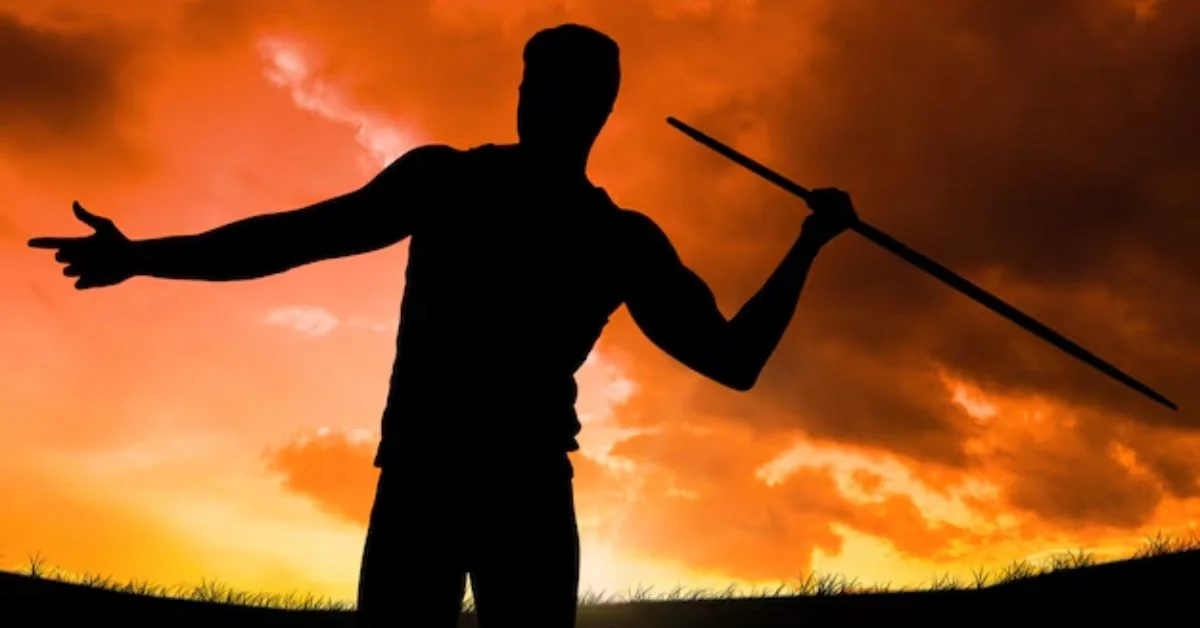In the realm of graphic novels and superhero narratives, few works have stood the test of time like “Watchmen.” Yet, as we delve into “Watchmen on All,” we find a fascinating character that redefines our understanding of vigilantism: Calvin. This unique interpretation offers readers more than just high-octane action; it provides a deep exploration of morality, leadership, and what it truly means to be a hero in an often chaotic world. As we journey through Calvin’s perspective, we’ll uncover layers of meaning that resonate with contemporary issues and challenge traditional notions about right and wrong. Join us as we unravel how Calvin’s story not only captivates but also shapes our ideas about justice today.
Exploration of ‘Watchmen on All’ Calvin
Calvin stands out in “Watchmen on the All” as a complex character whose journey is both compelling and thought-provoking. Unlike typical heroes, he grapples with moral ambiguities that reflect the struggles of our time. His actions provoke questions about justice and accountability, revealing the fine line between heroism and vigilantism.
As we explore Watchmen on All Calvin’s motivations, it becomes evident that his choices are often driven by personal experiences rather than a rigid code of ethics. This dimension makes him relatable to readers who may find themselves torn between right and wrong in their own lives.
Moreover, Watchmen on All Calvin’s relationships with other characters serve to deepen our understanding of his persona. Each interaction shapes his worldview, showcasing how external influences can alter one’s path towards becoming either a savior or an outlaw in society’s eyes.
Meaning and Origins of ‘Watchmen on All’ Calvin
‘Watchmen on All’ Calvin emerges from a rich tapestry of literature and lore, blending themes of heroism with moral complexity. The name ‘Calvin’ draws inspiration from historical figures known for their decisive leadership and ethical dilemmas. This character embodies the struggles between duty and personal belief.
The origins of this narrative delve into human psychology, exploring why someone would choose to take vigilante justice into their own hands. Calvin’s journey reflects societal anxieties about authority, power, and corruption. It invites readers to question the very nature of justice.
Moreover, ‘Watchmen on All’ serves as a metaphorical battleground where ideals clash against harsh realities. As tensions rise in contemporary society regarding ethics in governance, Calvin stands as both a symbol of resistance and introspection within an ever-evolving moral landscape.
Importance and Impact Today
The relevance of ‘Watchmen on All’ Calvin resonates deeply in today’s society. As issues like social justice, morality, and personal responsibility become increasingly discussed, Calvin’s character offers a fresh lens through which we can examine vigilantism. He forces us to question what it means to take action when traditional systems fail.
Calvin embodies the struggle between right and wrong in an imperfect world. His choices challenge readers to reflect on their own beliefs about justice and accountability. This reflection is crucial as communities strive for change amid rising tensions around law enforcement and civil rights.
Moreover, Calvin’s journey inspires modern leaders who grapple with complex moral dilemmas. His story serves as a reminder that true heroism often involves sacrifice and uncertainty, pushing individuals to rise above personal fears for the greater good while navigating ethical gray areas.
Shaping Perspectives: Literature, Media, and Leadership
Literature and media shape our understanding of complex issues, including vigilantism. In “Watchmen on the All,” Calvin embodies this intersection, challenging traditional narratives about heroism. His character invites readers to question moral boundaries and societal expectations.
Leadership in these contexts often mirrors the struggles faced by characters like Calvin. He navigates a world filled with gray areas where right and wrong are not easily defined. This ambiguity reflects real-world challenges leaders encounter when making tough decisions that impact communities.
Through Calvin’s journey, we see how stories can influence perspectives on justice and responsibility. They encourage discourse around what it means to protect society while grappling with personal ethics. As audiences engage with such narratives, they gain insights into their own values and leadership styles, fostering deeper connections to the themes presented in literature and media.
Life Lessons and Significance of Calvin
Calvin’s journey in “Watchmen on All” offers profound insights into morality and duty. He grapples with the weight of his decisions, illustrating that being a hero isn’t merely about power or strength. It’s about choices, responsibility, and the consequences they bring.
His struggles resonate deeply with readers today. They serve as reminders that even reluctant heroes face moral dilemmas. Calvin’s internal conflict showcases how vulnerability can be a source of strength rather than weakness.
Through his character, we learn that vigilance comes at a cost. The path of justice may demand sacrifices and challenge our very beliefs. Calvin becomes an emblem not just of vigilantism but also the complexities surrounding it—urging us to reflect on our values amid chaos.
Cultural Impact and Legacy
Calvin from “Watchmen on All” has significantly influenced contemporary discussions surrounding vigilantism. His character embodies the complexities of moral choices in a world plagued by corruption. This nuanced portrayal resonates with audiences, prompting reflections on justice and personal responsibility.
The narrative’s cultural impact is evident across various media forms. From graphic novels to film adaptations, Calvin’s journey sparks conversations about the implications of taking law into one’s hands. It challenges viewers to consider what it means to be a hero in an imperfect society.
Moreover, Calvin’s legacy serves as a platform for exploring themes like power dynamics and ethical dilemmas. As societies grapple with crime and accountability, his story remains relevant, illustrating how fiction can mirror real-world issues while inspiring dialogue around morality and ethics.
Discussion on Calvin’s Character and its Significance
Calvin’s character in “Watchmen on the All” is a complex tapestry woven from threads of resilience, morality, and introspection. He embodies the quintessential reluctant hero—one who grapples with personal demons while striving to uphold justice. This internal conflict makes him relatable in a world filled with shades of gray.
His journey reflects the struggles many face when confronted by societal pressures and ethical dilemmas. Instead of embracing vigilantism wholeheartedly, Calvin questions its necessity and ramifications. This thoughtful approach invites readers to ponder their own values and beliefs regarding justice.
Moreover, Calvin serves as a mirror for broader societal issues. His actions spark discussions about accountability and leadership in turbulent times. Through his eyes, we explore what it truly means to be heroic amidst chaos—and what sacrifices might accompany that title.
Calvin: The Reluctant Hero
Calvin stands out as a reluctant hero in “Watchmen on All.” His journey is not fueled by a thirst for glory or revenge. Instead, he grapples with doubts and ethical dilemmas that challenge his very nature.
Throughout the narrative, Watchmen on All Calvin’s hesitance reveals layers of complexity. He embodies the struggle between duty and personal conviction. This internal conflict makes him relatable to readers who may also feel trapped by societal expectations.
As events unfold, Watchmen on All Calvin grows into his role despite initial resistance. His evolution offers insight into what it truly means to be heroic—not just through action but through introspection and moral courage. It’s this nuance that sets him apart from traditional vigilante archetypes in literature and media.
Themes Explored Through Calvin
Calvin’s character in “Watchmen on All” delves into themes of morality, justice, and personal sacrifice. His journey challenges traditional notions of what it means to be a hero. Instead of seeking glory or recognition, Calvin grapples with his internal conflicts as he navigates the murky waters of vigilantism.
The exploration of duality is prominent in Calvin’s story. He embodies both protector and avenger, illustrating that heroes can emerge from complex motivations rather than simple righteousness. This ambiguity invites readers to reflect on their own beliefs about ethics and accountability.
Moreover, Calvin confronts societal issues such as corruption and inequality. Through his eyes, we witness the struggle against systemic failure while questioning our roles within these structures. Each action taken by Calvin serves not just as a plot device but also as a commentary on global realities that resonate with audiences today.
The Legacy and Significance of Calvin in ‘Watchmen on All’
Calvin’s character in ‘Watchmen on All’ serves as a profound lens through which we can examine vigilantism and its moral complexities. He embodies the struggle between personal ethics and societal expectations, raising questions about justice that resonate with audiences today.
His journey is not just one of heroism but also encompasses vulnerability, fear, and growth. The decisions he makes often highlight his reluctance to fully embrace his role as a vigilante, making him relatable to those wrestling with their own choices in real life.
The cultural impact of Calvin has been significant; he stands at the intersection of literature and media discourse surrounding morality. As society grapples with issues of crime, punishment, and justice systems that may fail them, Calvin’s story encourages reflection on these themes.
Calvin represents more than just a character within a narrative—he symbolizes the ongoing quest for understanding what it means to be both human and heroic. His legacy continues to inspire discussions around vigilance versus justice in an ever-evolving cultural context.









